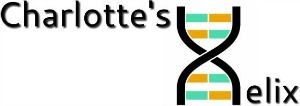| http://eca.state.gov/forum/journal/future.htm |
AIDS: Acquired Immunodeficiency Syndrome. First reported in 1981, it has since become a major global epidemic, killing over 10 million people and infecting tens of millions more. The disease is caused by HIV, a virus that destroys the body's ability to fight infections and certain cancers. Go to the NHGRI glossary for more information.
Alzheimer's: A mental disorder that gradually destroys vital nerve cells in the brain. Symptoms include loss of memory, judgment and reasoning, and changes in mood and behavior. It is not a normal part of aging.
Antibiotics: Drugs that fight infections.
Antibodies: Protein molecules produced by the body to fight infection
or disease.
Artery: Blood vessel carrying blood away from the heart.
Arthritis: An inflammatory condition that often causes pain, swelling, and stiffness in the joints, often making even minor movements uncomfortable or painful.
Blood pressure: The pressure caused by the blood moving against the walls of the blood vessels, especially the arteries. It varies with the strength of the heartbeat, the flexibility of the arterial walls, the amount of the blood, and a person's health, age, and physical condition. Normal adult blood pressure is 120/80. If a person has high blood pressure, medication is often prescribed to lower the pressure.
Cancer: A general term for more than 100 diseases that are characterized by uncontrolled and rapid growth of abnormal cells. Cancer cells can spread locally or through the bloodstream to other parts of the body.
Chemotherapy: The treatment of cancer using specific chemical agents or drugs that harm fast-growing cells. This treatment kills fast-growing cancer cells, but often harms other fast-growing cells as well, such as the cells for hair and fingernails.
Cholesterol: A white substance found in many foods that is an important element in cell walls in the body. An unusually high level of cholesterol in the blood is often a symptom of heart disease.
Colon: A section of the large intestine, in the digestive tract. The total length is approximately 5 feet (approx. 150 centimeters) in the adult. It is responsible for forming, storing, and expelling waste.
Diagnose: To identify a person as having a certain disease or condition.
Genomic: (adj.) (medicine, treatment, drugs, researchers) Using genetic material or research.
Heart disease: A problem that prevents the heart from working normally. This problem can be with the heart's shape or how the heart works, or with the blood vessels supplying the heart.
Human Genome Project: An international research project to map each human gene and to completely sequence human DNA. (See NHGRI glossary for more information.)
Hypodermic needle: A hollow needle used to inject medicine or drugs directly into the blood.
Immune system: The body system, made up of many organs and cells, that defends the body against infection, disease and foreign substances. The immune system is often stimulated in specific ways to fight cancer cells.
Inhaler: A hand-held device used to take medicine by breathing in through the nose or mouth. Also called inhalator.
Leptin: A hormone produced by fat cells for regulation of appetite. It controls how much you want to eat, how much of the food your body stores, and how much is used for energy.
Liver: A large organ in animals that is important for digesting food and removing waste products.
Mental illness: Any of various conditions which cause problems with a person's normal thinking, feeling, or behavior, and caused by social, psychological, biochemical, genetic, or other factors, such as infection or head trauma. Also called emotional illness, mental disease, mental disorder.
Microchip: An extremely small piece of semiconducting material, which can contain a very large amount of information.
Neuron: A cell that sends electrical signals across distances. Neurons receive input from sensory cells or other neurons and send messages to muscles or other neurons.
Obesity: (n), Obese (adj.) (1) Having too much body fat.
Parkinson's: A problem with the central nervous system. A neurological disease that continues to get worse. Symptoms include uncontrolled shaking of the body and difficulties with muscular coordination.
Poison: A substance that causes injury, illness, or death
Protein: Essential components of all living cells that allow a body to function work well (including enzymes, hormones, and antibodies). Proteins are essential in the diet of animals for the growth and repair of tissue.
Radioactive isotope: Elements with an unstable nucleus that act as poisons, killing cancer cells without destroying other parts of the body.
Skin patch: A small piece of material put on the skin. It contains medicine that gradually enters the body through the skin.
Smart bomb: A genomic drug that contains natural antibodies targeted directly at cancer cells.
Swallow: (v) To cause (food or drink, for example) to pass through the mouth and throat into the stomach.
Symptom: An indication of disorder or disease that signals a change from normal function, sensation, or appearance.
Trophic compounds: The body's natural substances that help cells grow and develop.
Tumor: A mass of abnormal cells that are the result of rapid cell division. Tumors perform no useful body function. They may be either benign (non-cancerous) or malignant (cancerous).
Ultrasonic: (adj.) (1) Sounds that the human ear cannot hear. (2) Of or relating to acoustic frequencies above the range that the human ear can hear, or above approximately 20,000 hertz.
Vaccine: Weakened or dead poisonous cells injected into the blood in order to stimulate the production of antibodies.

No comments:
Post a Comment